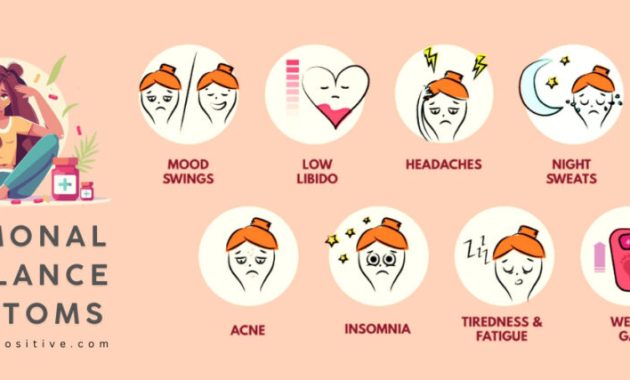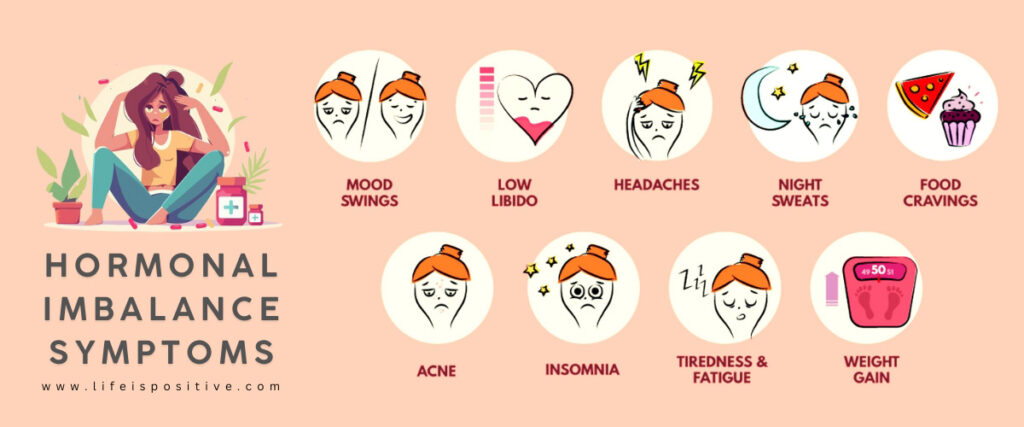
How to Recognize Hormonal Imbalances That Affect Diabetes: A Comprehensive Guide
Diabetes, a chronic metabolic disorder, affects millions worldwide. It is characterized by the body’s inability to regulate blood sugar levels effectively. While genetics and lifestyle play significant roles, another crucial factor often complicates diabetes management: hormonal imbalances. This article delves into how to recognize hormonal imbalances that affect diabetes, providing a comprehensive understanding of their impact and offering insights into effective management strategies. Understanding these intricate connections is vital for individuals with diabetes and their healthcare providers. Recognizing these imbalances can significantly improve health outcomes and overall quality of life.
The Interplay of Hormones and Diabetes
Hormones act as messengers within the body, coordinating various physiological processes. They influence metabolism, growth, reproduction, and mood. In diabetes, hormonal imbalances can exacerbate existing conditions and lead to further complications. Several hormones are directly involved in glucose metabolism, making their dysregulation particularly impactful.
Insulin and Glucagon: The Glucose Regulators
Insulin, produced by the pancreas, is the key hormone that enables glucose uptake by cells. In type 1 diabetes, the body does not produce insulin. In type 2 diabetes, the body either does not produce enough insulin or the cells become resistant to its effects. Glucagon, another pancreatic hormone, works in opposition to insulin, raising blood sugar levels. An imbalance in these two hormones directly impacts blood sugar control. This is a core element of **how to recognize hormonal imbalances that affect diabetes**.
Cortisol: The Stress Hormone
Cortisol, released by the adrenal glands, plays a critical role in the body’s response to stress. While necessary for short-term survival, chronic elevation of cortisol can increase blood sugar levels. This can worsen insulin resistance and make diabetes management more challenging. Stress, a trigger for cortisol release, is a common factor. This adds another layer to the understanding of **how to recognize hormonal imbalances that affect diabetes**.
Thyroid Hormones: Metabolic Influencers
Thyroid hormones regulate metabolism. Both hyperthyroidism (overactive thyroid) and hypothyroidism (underactive thyroid) can affect blood sugar control. Hyperthyroidism can increase glucose production and insulin resistance. Hypothyroidism can slow down metabolism, potentially affecting insulin sensitivity. Therefore, thyroid function assessment is crucial for individuals with diabetes. This is another important factor in **how to recognize hormonal imbalances that affect diabetes**.
Growth Hormone: Cellular Regulator
Growth hormone influences glucose metabolism, and imbalances can affect insulin sensitivity. Elevated growth hormone levels can lead to insulin resistance, making it harder to control blood sugar. This further underscores the importance of understanding **how to recognize hormonal imbalances that affect diabetes**.
Recognizing the Signs of Hormonal Imbalances
Identifying hormonal imbalances requires awareness of specific symptoms and potential underlying causes. The symptoms can vary based on the specific hormone affected. Recognizing these symptoms is crucial for timely diagnosis and intervention. It is essential to know **how to recognize hormonal imbalances that affect diabetes**.
Changes in Blood Sugar Control
Unexplained fluctuations in blood sugar levels are a significant indicator. This includes frequent highs (hyperglycemia) or lows (hypoglycemia), even with consistent medication and diet. These fluctuations often signal an underlying hormonal issue. This is a key aspect of **how to recognize hormonal imbalances that affect diabetes**.
Weight Changes
Significant weight gain or loss without apparent changes in diet or exercise can be a symptom. Hormonal imbalances, such as those affecting thyroid function or cortisol levels, can impact metabolism and weight. This is another important sign of **how to recognize hormonal imbalances that affect diabetes**.
Fatigue and Weakness
Persistent fatigue and weakness, despite adequate sleep, are common symptoms. Hormonal imbalances can disrupt energy production and cellular function. This can greatly affect quality of life. This is a signal of **how to recognize hormonal imbalances that affect diabetes**.
Mood Changes
Mood swings, irritability, anxiety, or depression can be linked to hormonal imbalances. Hormones like cortisol and thyroid hormones directly influence mood regulation. This is another crucial aspect of **how to recognize hormonal imbalances that affect diabetes**.
Sleep Disturbances
Insomnia or other sleep problems can be associated with hormonal imbalances. Hormones such as cortisol can disrupt sleep patterns. This is an important aspect to consider when learning **how to recognize hormonal imbalances that affect diabetes**.
Changes in Skin and Hair
Dry skin, hair loss, or changes in hair texture can be associated with thyroid imbalances. These changes are often visible. This is another important factor when considering **how to recognize hormonal imbalances that affect diabetes**.
Diagnosis and Management Strategies
If you suspect a hormonal imbalance, consult your healthcare provider. Early diagnosis and appropriate management are crucial for improved health outcomes. This is a critical step when considering **how to recognize hormonal imbalances that affect diabetes**.
Medical Evaluation
Your doctor will likely perform a physical examination and order blood tests. These tests can assess hormone levels. They can also help identify any underlying conditions. This is a key step in the process of **how to recognize hormonal imbalances that affect diabetes**.
Blood Tests
Specific blood tests are used to measure hormone levels. These include tests for thyroid hormones (TSH, T3, T4), cortisol, and insulin. Glucose tolerance tests can also be helpful. Testing is key in **how to recognize hormonal imbalances that affect diabetes**.
Treatment Options
Treatment depends on the specific hormonal imbalance. It can include medication, lifestyle changes, and, in some cases, surgery. The right plan can help manage diabetes better. The goal is to help you learn **how to recognize hormonal imbalances that affect diabetes**.
Medication
Medications may be prescribed to address specific hormonal deficiencies or excesses. For example, thyroid hormone replacement therapy for hypothyroidism. Medications are often prescribed. This is a necessary part of understanding **how to recognize hormonal imbalances that affect diabetes**.
Lifestyle Adjustments
Healthy lifestyle choices are essential for managing both diabetes and hormonal imbalances. This includes a balanced diet, regular exercise, and stress management techniques. Exercise and diet are key. This is important in learning **how to recognize hormonal imbalances that affect diabetes**.
Dietary Considerations
A balanced diet is crucial. Focus on whole foods, lean proteins, and complex carbohydrates. Limit processed foods, sugary drinks, and excessive fats. Eating right is important. This helps when learning **how to recognize hormonal imbalances that affect diabetes**.
Exercise Regimen
Regular physical activity improves insulin sensitivity and helps manage blood sugar levels. Aim for at least 150 minutes of moderate-intensity exercise per week. Exercise is important. It is a factor in learning **how to recognize hormonal imbalances that affect diabetes**.
Stress Management
Chronic stress can worsen hormonal imbalances. Implement stress-reducing techniques, such as meditation, yoga, or deep breathing exercises. Managing stress is important. This helps you learn **how to recognize hormonal imbalances that affect diabetes**.
The Benefits of Addressing Hormonal Imbalances
Addressing hormonal imbalances in individuals with diabetes offers several benefits. These benefits can significantly improve their health outcomes and overall quality of life. These improvements are key when considering **how to recognize hormonal imbalances that affect diabetes**.
Improved Blood Sugar Control
Effective management of hormonal imbalances can lead to more stable and predictable blood sugar levels. This reduces the risk of complications associated with diabetes. This is a benefit of learning **how to recognize hormonal imbalances that affect diabetes**.
Reduced Risk of Complications
By addressing hormonal imbalances, you can reduce the risk of long-term diabetes complications. These include heart disease, nerve damage, and kidney disease. This is a benefit of learning **how to recognize hormonal imbalances that affect diabetes**.
Enhanced Quality of Life
Managing hormonal imbalances can improve energy levels, mood, and overall well-being. This leads to a higher quality of life. This is a benefit of learning **how to recognize hormonal imbalances that affect diabetes**.
Increased Medication Effectiveness
Addressing hormonal imbalances can improve the effectiveness of diabetes medications. This can lead to better blood sugar control. This is a benefit of learning **how to recognize hormonal imbalances that affect diabetes**.
Conclusion
Understanding how to recognize hormonal imbalances that affect diabetes is critical for effective diabetes management. By recognizing the signs and symptoms of hormonal imbalances, individuals with diabetes can take proactive steps. They can seek appropriate medical evaluation and treatment. This proactive approach can lead to better blood sugar control and improved overall health. This is the key takeaway on **how to recognize hormonal imbalances that affect diabetes**. The knowledge and strategies detailed in this guide empower individuals to navigate their health journey with greater confidence and achieve a higher quality of life. [See also: Related Article Titles]

